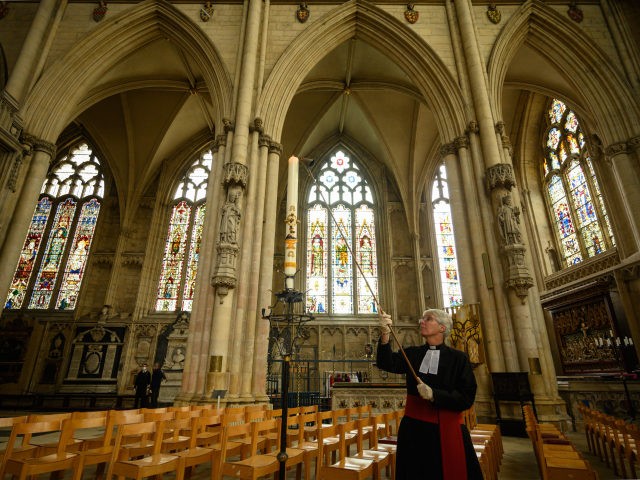The Archbishop of Canterbury has admitted that spending hundreds of millions of pounds on attempts to bring new members to the Church of England has so far failed.
Speaking to the Church Times late last week, Archbishop Welby said that turning around declining numbers “has not so far happened”.
Asked whether he thought England’s national church could become a smaller, “faithful remnant”, he said: “If that happens, it happens… But it’s not us who grow the Church. It’s God who grows the Church.”
The Times of London reported on Monday figures from the last General Synod revealed £248 million was spent on the church’s “renewal and reform” programme between 2017 and 2020.
The initiative sought to “reverse the decline of the Church of England” through attracting new worshippers, building new congregations, and maintaining impoverished parishes. One project spent £4.9 million on converting a nightclub in multicultural Bradford into a church, including a cafe and gym.
Despite the efforts, typical Sunday church attendance fell to 690,000 in 2019 from 740,000 in 2016.
The Church has seen massive declines with younger generations, with just two per cent of Britons aged 18 to 23 saying they identified as Church of England members in 2018, down from nine per cent in 2002.
Head of the renewal and reform programme Debbie Clinton said that the Church of England aims to double the number of under-18s attending church by 2030, but admitted that decades of decline in youth attendance cannot be “reversed overnight”.
The falling youth numbers may seem surprising given the series of progressive and woke positions the Church, its bishops, and clergy have taken over the years, including advocating for mass illegal migration, declaring climate cult leader Greta Thunberg a “prophet”, and claiming that “God is non-binary”.
The seat of the worldwide Anglican Communion has also embraced the Marxist Black Lives Matter (BLM) movement, earlier this year announcing a woke review on thousands of monuments on church property for evidence of references to slavery or colonialism.
The review came after incidents such as the church apologising for a second time for its past involvement in slavery — despite becoming a prominent force in campaigning to stop the global trade in human beings in the early 1800s — the archbishop admitting his “white advantage”, and Bristol cathedral removing the stained glass dedicated to the philanthropist Edward Colston over his links to the slave trade after his statue was torn down and thrown into the harbour by destructive far-leftists.
Some churches have also made some controversial choices of how to treat their holy spaces, including Norwich cathedral erecting a helter-skelter slide in the nave in 2019 and Rochester cathedral putting up a miniature golf course in its nave in the same year.
Two years ago, a female vicar had almost allowed Muslims to celebrate the end of Ramadan at St Matthew and St Luke’s church in Darlington, demanding crosses and Christian photographs be covered to accommodate them before the plans were halted by the diocese of Durham on grounds that non-Christian worship in a consecrated Church of England building is forbidden.
Anglican authorities have also become more progressive in terms of their stance on gender, telling its schools in 2017 that they should encourage children to experiment with their “gender identity” and issuing guidance on special services to “welcome” parishioners who have changed sex, in a kind of transgender baptism.
While the Church of England has so far resisted the move to back gay marriage, such as its sister church the Methodist Church of Great Britain, Anglican authorities allow for church weddings for two people born of the same biological sex if one has a certificate proving they had legally changed their gender.
“Trans people with gender recognition are already able to marry in our churches. Being transgender does not prevent someone offering themselves for ordained ministry and we have transgender clergy as well as laity,” the Church of England had reaffirmed in October 2018.
The church has faced some criticism, including from Queen Elizabeth II’s former chaplain Dr Gavin Ashenden who converted to Catholicism in response to the Church of England’s failure to challenge “political correctness”.
“Freedom of speech is slowly being eroded; those who refuse to be ‘politically correct’ risk accusations of thought crime and Christians are being unfairly persecuted.
“And where is the Church of England in this crucial culture war? Is it on the front line? Not that I can see. If anything, it has switched sides,” Dr Ashenden had written in 2019.

COMMENTS
Please let us know if you're having issues with commenting.